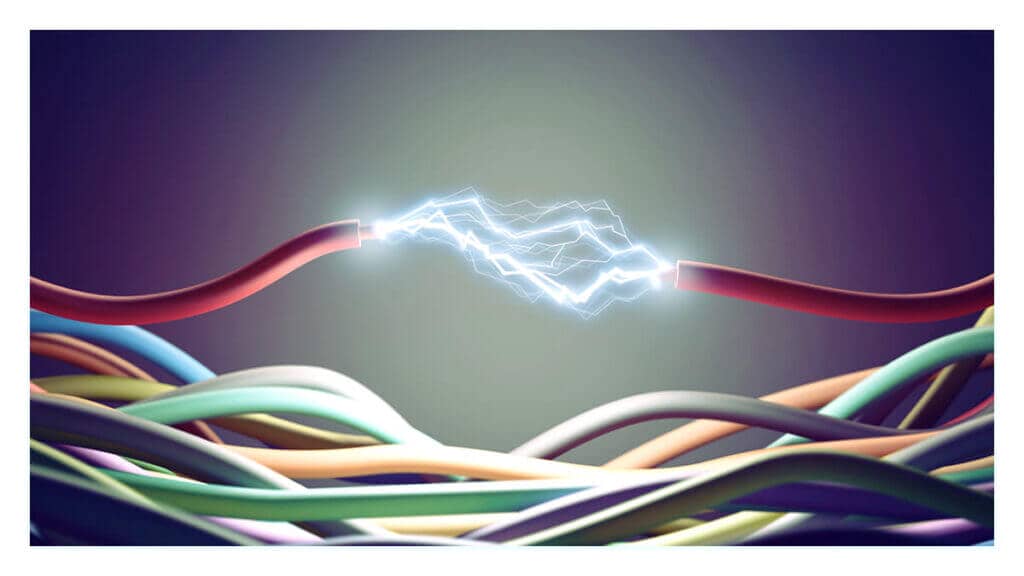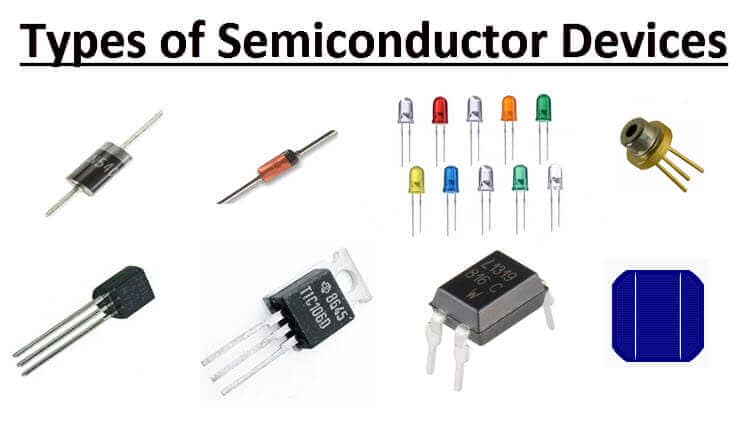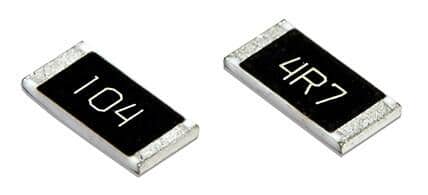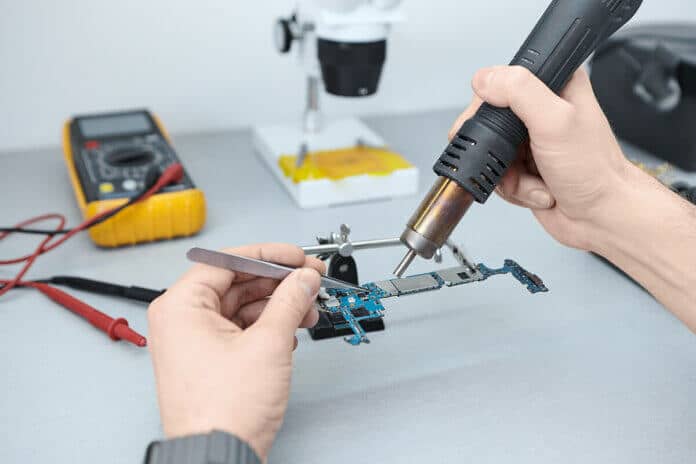Mobile Phone Repair Version 1
The mobile phone is the result product of engineering. It is an engineering product. For Mobile phone repair, you should know the basic technical terms.
There are twelve concepts that you should know for the mobile phone motherboard or on the symbolic conductive wire. Mobile Phone Repair
Voltage ( Volt )
Current ( Ampere )
Resistance ( ohms)
Power (Watts)
Software ( Firmware )
RF (Radio Frequency)
Heat
Field (Electric field, Magnetic field, Electromagnetic field)
Pollution
Mechanical Effects (vibration, impact, etc.)
Capacitive Impact
Noise and Distortion
Why did we list these terms in the first part of the guide?
When repairing a mobile phone, soldering, applying heat to the phone, or disassembling and reassembling the phone, we must consider and embrace these twelve terms of an element or path.
Conductive
Speaking of a conductor; not just electrical conductivity but the transmission of liquid, the transmission of sound, transmission of heat should also be understood.
Materials that do not resist electric current and easily conduct current are called conductors.
Electrically the main conductors are;
Gold, Platinum, Silver, and copper.

Insulator
Substances that show high resistance to electric current and prevent the flow of electric current are called insulators.
Main electrical insulators;
Glass, porcelain, mica, rubber, plastic, paper, and air can be counted as the main insulators.
Semiconductor
Semiconductors fall between conductors and insulators in terms of conductivity and insulation.
Germanium (Ge) and Silicon (si) are the most widely used semiconductors.
Transistors, diodes, and ICs are produced from semiconductor materials. Silicium is mostly used in semiconductor electronic circuit elements.

Voltage
The potential difference between the two ends of a generator is called voltage. Voltage is indicated by the letters “E”, “U” or “V” in the relevant documents. The unit of voltage is volt, it is measured with a voltmeter.
The average operating voltage range of mobile phone batteries is between 3.15volts and 4.20volts. In schematics and service documents;
Volt is shown with V;
Millivolt is shown mV
and microvolt is shown with µV
Current
The density of electrons passing through the cross-section of a conductor is called current. Direct current (DC) is shown by the letter “I”. Alternating current (AC) is shown by the letter “i”. The unit of electric current is ampere. It is measured with an ammeter.
The functioning of mobile phones is at µA and mA levels. When most functions of mobile phones work at the same time, the current drawn from the battery can exceed 1 amp.
The currents of mobile phone batteries can start from 750 milliamperes and go up to 5000 milliamperes.
In schematics and service documents;
Ampere is shown with A
Milliampere is shown with mA
Microampere is shown by µA.
Resistance
Resistance is a measure of the opposition to current flow in an electrical circuit. Resistance is measured in ohms with Ohmmeters, symbolized by the Greek letter omega (Ω).

Power
The work done per unit time is called power. Power is indicated by “P”. The unit of electrical power is Watt. Power is measured with a Wattmeter.
In schematics and service documents;
with Watt is shown with W
Milliwatt is shown with mW
Microwatt is shown with µW.
The value of mobile phone batteries is also written in power type.
In our Mobile Phone Repair Basic Concepts topic, we have given these pieces of information so far. In the continuation of the subject, we will continue to explain the following topics below.
- Types of electric current (direct current, alternating current)
- Electrical circuit (Open circuit, closed circuit)
- Short circuit
- Series concept
- Parallel concept
- Open schema
- Lay-out plan
- Circuit board (motherboard)
The new version of the topic has been published.


